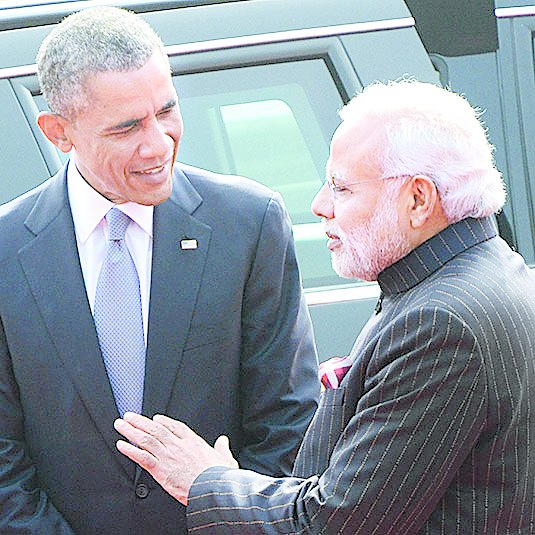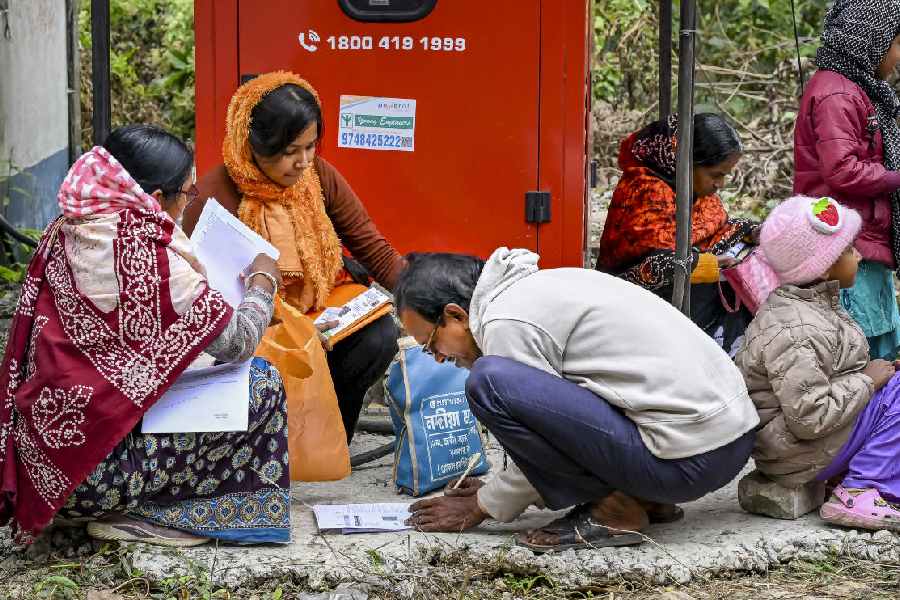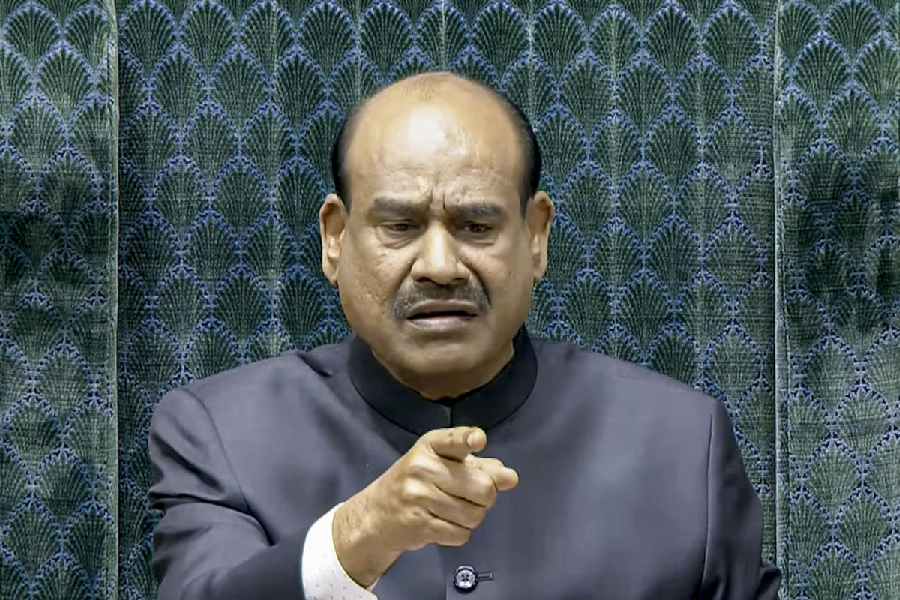
The visit of the president of the United States of America, Barack Obama to India in January 2015 would be remembered by posterity more for his knowledge and commentary on the Constitution of India than anything else. What is Article 25, which Obama referred to, out of the blue? "Art 25. (1) Subject to public order, morality and health and to other provisions of this Part, all persons are equally entitled to freedom of conscience, and the right freely to profess, practice and propagate religion. (2) Nothing in this article shall affect the operation of any existing law or prevent the State from making any law - (a) regulating or restricting any economic, financial, political or other secular activity which may be associated with religious practice; (b) providing for social welfare and reform or the throwing open of Hindu religious institutions of a public character to all classes and sections of Hindus."
It needs to be reiterated that the Constitution vide Article 25 guarantees to every person freedom of conscience and the right to freely profess, practise and propagate any religion and this right is not confined or restricted to Indian citizens alone. It covers all persons residing in India (temporary or permanent). However, this right to freedom of religion under Article 25 is "subject to" restriction which may be imposed by the State on grounds of "public order, morality and health", other provisions of Part III of the Constitution, regulating non-religious activity associated with religious practice; social welfare, reform and so on. Even the Hindus, who constitute the majority, have been rightly put under restriction, as Hindu religious institutions of a public character have been thrown open to all classes of Hindus .
The most significant of all, however, is the fact that there is nothing in the Constitution which stipulates that conversion is allowed or disallowed. Understandably, this gives fodder to sceptics and critics who debate the point. Is conversion legal or illegal? Do the terms referred to in Article 25, "profess, practise and propagate", include conversion or give a person the right to convert? According to judicial interpretation and case laws, it is not allowed.
So let us turn to some case laws to understand Article 25 further. A point arose in a case regarding Diwali. In a landmark judgment the Supreme Court of India imposed a "complete ban on bursting sound-emitting firecrackers between 10 pm and 6 am and maintained that it does not in any way violate the religious rights of any person as enshrined under Article 25".The festival of Diwali is mainly associated with puja performed on the auspicious day and not with firecrackers. In no religious text is it written that Diwali has to be celebrated by bursting crackers. "Diwali is a festival of lights, not of noises," according to in re: Noise pollution vs Unknown (2005) 5 SCC 733, 777 (Para 177). Indian society is pluralistic and tolerant. There is unity in diversity. If relaxation is allowed for one, there will be no justification for not relaxing it for the others.
In another case pertaining to the right to practise one's religion following the right to take out a religious procession (Gulam Abbas vs State of UP, AIR 1981 SC 2198; paras 2, 34 ,1982, 1 SCC 71), arose the issue of "restrictions imposed in the interest of preventing a breach of peace or obstruction of the thoroughfare" (Manzur Hassan Saiyid vs Zaman Saiyid Muhammad, AIR PC 36 (37): CWN 486). Thus once the "right of a community to take out a religious procession is established, it cannot be interfered with on the ground that it offends against the sentiments of another community". Hence, if the members of a community oppose the religious procession of another community on the ground that music must be stopped before their place of worship at any hour of the day or night, irrespective of whether public worship is actually going on at that time at that place or not, the oppositionists become wrongdoers (Gulam Abbas vs State of UP, AIR 1981 SC 2198; Sundaram vs R 1882, 6 Madras 203; in re, Sattar P. Abdul, AIR 1961 Mysore 57; 1961 Cri. Law Journal 291) and "they should be suppressed by the Police instead of the processionists". However powerful the opposition, the "Police cannot 'abdicate' their authority or play the role of an impotent before a band of miscreants, interfering with the lawful exercise of the legal rights of other people" (Sundaram vs R (1882) 6 Mad. 203, 205 (207) FB, approved by the Supreme Court in Gulam Abbas vs State of UP, AIR 1981 SC 2198).
On the "right to propagate" one's religion (Rev Stainislaus vs State of MP, AIR 1977 SC 908: 1977 SCC Cri 147: 1977 2 SCR 611, followed in Satya Ranjan Manjhi vs State of Orissa 2003 7 SCC 439) it was upheld that the right to communicate a person's beliefs to another person or to expose the tenets of that faith exist, but it would "not include the right to convert" another person to the former's faith, because the latter person is "equally entitled to freedom of conscience". Surely, the "latter person is free to adopt another religion in the free exercise of his conscience, but nobody has the fundamental right to convert him to another religion" where he does not do it out of his free choice and will.
Thus there is no scope for any ambiguity that the freedom of religion guaranteed by Article 25 is astoundingly progressive. Perhaps Obama may note that this guarantee is available not only to citizens of India but to all persons "including aliens" (Commissioner, Hindu Religious Endowments vs Lakshmindra, 1954 SCR 1005).
It must be admitted that Obama is neither the first, nor can possibly be the last, of the Western people to pontificate in India about "religious tolerance". It is time that the West stopped teaching India the finer points on the subject. Their own history is crowded with race riots, temple burning, racial abuse and transparent bias of white US police. The West needs to resolve these first before adopting a holier-than-thou sermonizing attitude.










